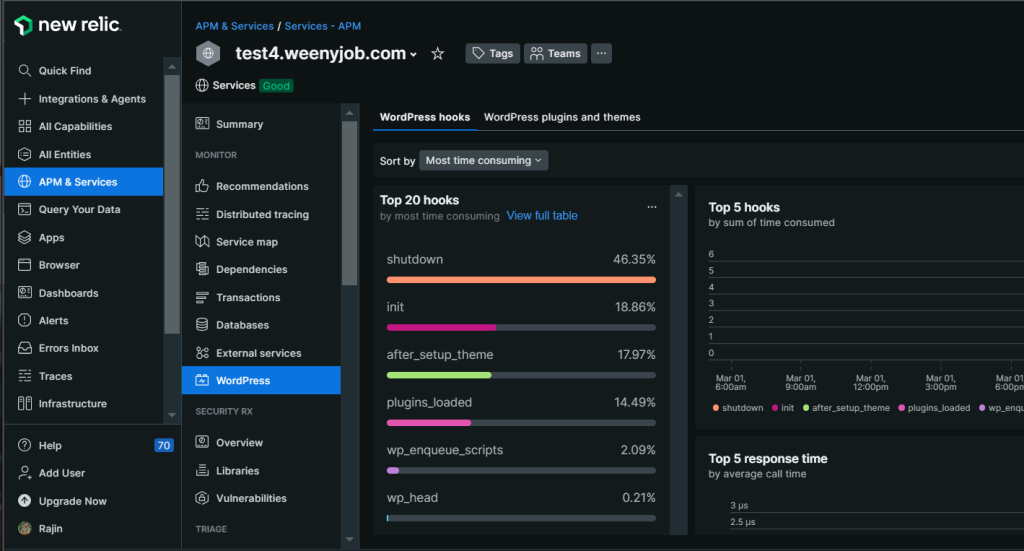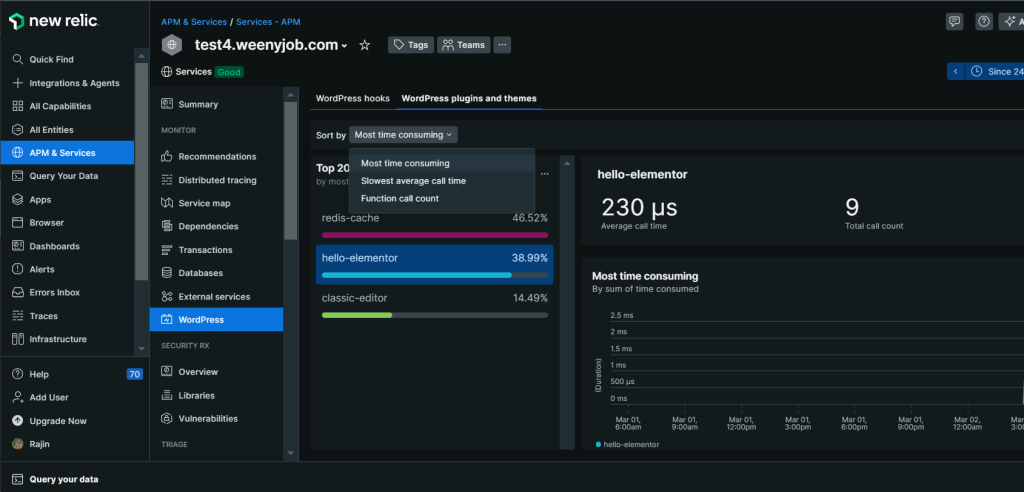Is your WordPress site moving at a snail’s pace? Slow load times can frustrate visitors and hurt your search rankings. New Relic, a powerful Application Performance Monitoring (APM) tool, is here to help. Paired with LaunchWP’s auto-configuration, diagnosing and fixing performance issues become straightforward.

Setting Up New Relic on LaunchWP
LaunchWP auto-configures New Relic for you on your server, you do not need to do a single configuration. Really! Just connect your License Key, and see the magic in your New Relic Dashboard. Checkout our article on how to connect New Relic with LaunchWP.
Understanding the New Relic Dashboard: A Performance Overview
The New Relic dashboard provides a wealth of information about your WordPress site’s performance. Let’s explore the key sections.
Key Metrics to Monitor: Apdex, Response Time, and Throughput
Apdex score measures user satisfaction based on response time. Response time is how long it takes for your server to respond to requests. Throughput is the number of requests your server handles. Keep an eye on these metrics. Declines could indicate performance issues.
Identifying Slow Transactions and Database Queries
Pinpoint slow-loading pages and API calls in New Relic. The “Transactions” section shows you the slowest parts of your site. Dive deeper to view individual database queries. Optimizing these queries can greatly improve speed.
Monitoring External Services and API Calls
New Relic also tracks external services. See how third-party APIs impact site performance. Slow API responses can bog down your site. Identify and address these bottlenecks to enhance speed.
Diagnosing Common WordPress Performance Issues with New Relic
New Relic helps identify common WordPress performance issues. The go-to view to get a snapshot of your site’s health and performance is the included dashboard. You can access your list of dashboards anytime from the Dashboards item in the left-hand navigation menu. At a glance, this dashboard shows you things like:
- Top 10 Transactions – which pages on your sites have received the most visits in the timeframe.
- Database call counts and Average database call duration – shows you what sort of load is on your database in the given timeframe.
- Transaction duration today compared with one week ago – shows you how your site’s performance has changed since last week. This can be useful if you’ve recently made some changes and are curious about what kind of impact they’ve had.

New Relic infused with LaunchWP provides an awesome interface with invaluable data regarding which hooks in your website is taking the most loading time, which plugins or theme is responsible for the slow response time, and how much time each are taking to respond.

Aside from the dashboard, there are also some more specialized views. If you navigate in the left-hand navigation menu to APM & Services and then select the name of your WordPress site (this is the name you set during the initial setup of the New Relic integration), you’ll be greeted with more in-depth information about particular aspects of your site, divided into sections.
Conclusion: Maintaining a Fast and Efficient WordPress Site
Debugging and optimizing a slow WordPress site requires a systematic approach. New Relic on LaunchWP makes it easy to identify and resolve performance issues. Remember to continuously monitor and optimize your site. This ensures long-term performance. Use this knowledge to improve your site’s speed and user experience. If you face any issues or need a hand in your debugging, feel free to create a support ticket and our team will be more than happy to assist.

